-
 Israel kills Hamas commander in Lebanon strike
Israel kills Hamas commander in Lebanon strike
-
Trump unveils first $5 million 'gold card' visa
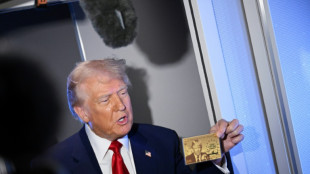
-
 Crashes, fires as Piastri fastest in chaotic second Japan GP practice
Crashes, fires as Piastri fastest in chaotic second Japan GP practice
-
India and Bangladesh leaders meet for first time since revolution
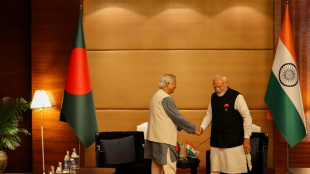
-
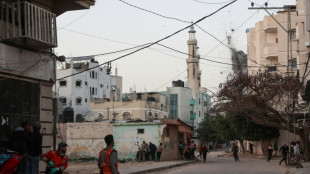 Israel expands ground offensive in Gaza
Israel expands ground offensive in Gaza
-
Families of Duterte drug war victims demand probe into online threats

-
 Stocks extend global rout after Trump's shock tariff blitz
Stocks extend global rout after Trump's shock tariff blitz
-
Kolkata's Iyer more bothered about impact than price tag

-
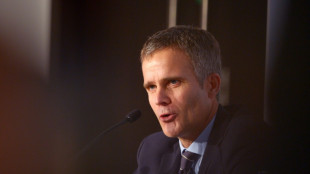 BP chairman to step down after energy strategy reset
BP chairman to step down after energy strategy reset
-
Indian patriotic movie 'icon' Manoj Kumar dies aged 87
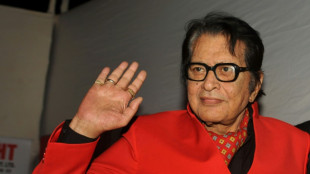
-
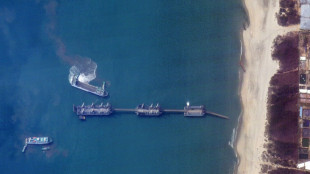 China floats battle barges in Taiwan invasion plans
China floats battle barges in Taiwan invasion plans
-
McLaren's Piastri fastest in chaotic second Japanese GP practice

-
 South Korea seize two tons of cocaine in largest-ever drug bust
South Korea seize two tons of cocaine in largest-ever drug bust
-
Pacific nations perplexed, worried by Trump tariffs
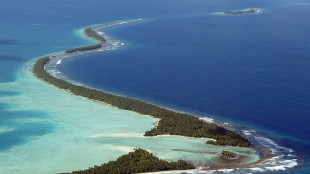
-
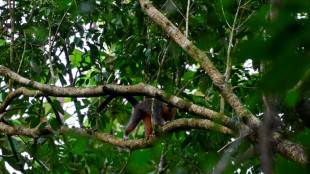 The race to save the Amazon's bushy-bearded monkeys
The race to save the Amazon's bushy-bearded monkeys
-
TikTok must find non-Chinese owner by Saturday to avert US ban

-
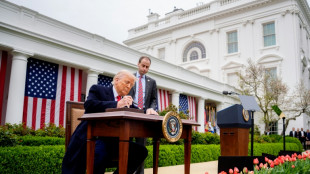 Trump tariffs to test resiliency of US consumers
Trump tariffs to test resiliency of US consumers
-
Clamping down on 'forever chemicals'

-
 Prominent US academic facing royal insult charge in Thailand
Prominent US academic facing royal insult charge in Thailand
-
Yana, a 130,000-year-old baby mammoth, goes under the scalpel
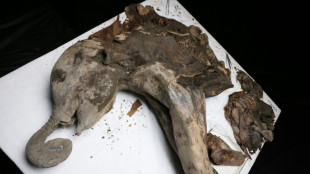
-
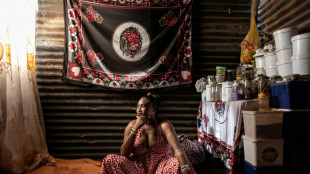 'Don't want to die': Lesotho HIV patients look to traditional medicine
'Don't want to die': Lesotho HIV patients look to traditional medicine
-
Curry scores 37 as Warriors outgun LeBron's Lakers

-
 Crops under threat as surprise March heatwave hits Central Asia: study
Crops under threat as surprise March heatwave hits Central Asia: study
-
Japan PM says Trump tariffs a 'national crisis'

-
 Security 'breakdown' allows armed men into Melbourne's MCG
Security 'breakdown' allows armed men into Melbourne's MCG
-
Norris fastest in Japan GP first practice, Tsunoda sixth on Red Bull debut

-
 Albon says Thailand taking bid for F1 race 'very seriously'
Albon says Thailand taking bid for F1 race 'very seriously'
-
'It's gone': conservation science in Thailand's burning forest
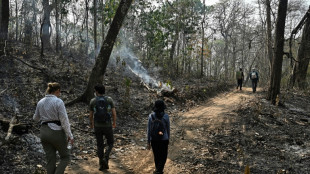
-
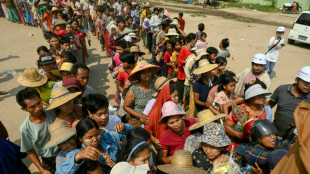 Protest as quake-hit Myanmar junta chief joins Bangkok summit
Protest as quake-hit Myanmar junta chief joins Bangkok summit
-
EU leaders push for influence at Central Asia summit
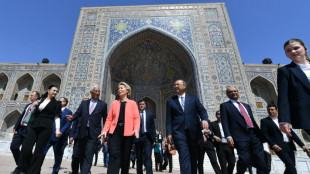
-
 Asian stocks extend global rout after Trump's shock tariff blitz
Asian stocks extend global rout after Trump's shock tariff blitz
-
Lewandowski, Mbappe duel fuelling tight La Liga title race

-
 South Korea court upholds President Yoon's impeachment, strips him of office
South Korea court upholds President Yoon's impeachment, strips him of office
-
Liverpool march towards title as Man City face Man Utd

-
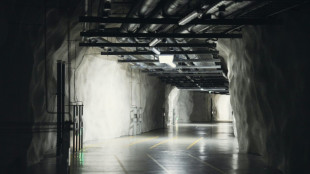 Finland's colossal bomb shelters a model for jittery Europe
Finland's colossal bomb shelters a model for jittery Europe
-
Athletes frustrated as France mulls Muslim headscarf ban in sport

-
 Korda downs Kupcho to stay alive at LPGA Match Play
Korda downs Kupcho to stay alive at LPGA Match Play
-
German industry grapples with AI at trade fair

-
 Irish school trains thatchers to save iconic roofs
Irish school trains thatchers to save iconic roofs
-
'Frightening': US restaurants, producers face tariff whiplash
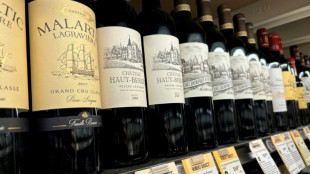
-
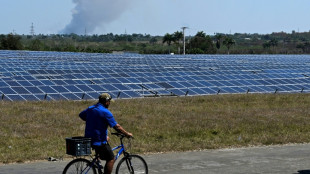 Cuba looks to sun to solve its energy crisis
Cuba looks to sun to solve its energy crisis
-
Experts warn 'AI-written' paper is latest spin on climate change denial

-
 PSG eye becoming France's first 'Invincibles'
PSG eye becoming France's first 'Invincibles'
-
Late birdie burst lifts Ryder to Texas Open lead

-
 Five potential Grand National fairytale endings
Five potential Grand National fairytale endings
-
Trump purges national security team after meeting conspiracist
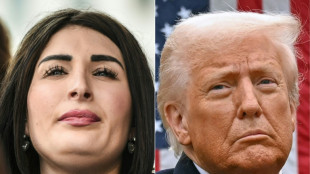
-
 More work for McIlroy even with two wins before Masters
More work for McIlroy even with two wins before Masters
-
Trump hopeful of 'great' PGA-LIV golf merger
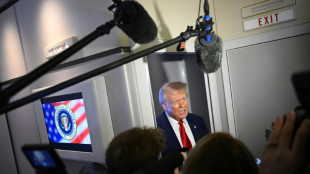
-
 No.1 Scheffler goes for third Masters crown in four years
No.1 Scheffler goes for third Masters crown in four years
-
Helium One Global Ltd Announces Jackson-29 Operational Update

Wealth that Brazil is not utilizing!
Brazil, a nation endowed with staggering natural riches, stands as one of the world’s great paradoxes: a land of immense wealth that it struggles to harness effectively. From the sprawling Amazon rainforest to vast mineral deposits and a coastline teeming with potential, the country possesses resources that could propel it to economic superpower status. Yet, persistent challenges—mismanagement, environmental degradation, and entrenched inequality—continue to stymie its ability to translate this bounty into sustainable prosperity. As global demand for green energy and rare minerals surges, Brazil’s untapped potential remains both a tantalising opportunity and a frustrating enigma.
A Treasure Trove of Resources:
Few nations rival Brazil’s natural endowment. The Amazon, covering nearly 60% of the country, is not only the planet’s largest carbon sink but also a repository of biodiversity, with untold species that could yield breakthroughs in medicine and agriculture. Beneath its soil lie some of the world’s richest reserves of iron ore, bauxite, and niobium—a metal critical for aerospace and electronics, of which Brazil supplies over 90% of global demand. Offshore, the pre-salt oil fields, discovered in 2006, hold an estimated 50 billion barrels, positioning Brazil as a top-tier petroleum producer. Add to this fertile lands that make it an agricultural giant—exporting soy, beef, and coffee—and the scale of its wealth becomes clear.
This abundance is no secret. In 2024, Brazil’s exports reached $330 billion, driven by commodities like iron ore ($47 billion) and crude oil ($39 billion), according to government data. Yet, these figures belie a deeper truth: the nation reaps only a fraction of the value its resources could command if harnessed strategically.
The Curse of Mismanagement:
Brazil’s failure to capitalise fully on its wealth is rooted in a litany of self-inflicted wounds. Corruption scandals, such as the Lava Jato (Car Wash) investigation, have siphoned billions from state coffers, notably from Petrobras, the national oil company. Infrastructure woes compound the problem: crumbling roads and inadequate ports inflate transport costs, rendering exports less competitive. A 2024 World Bank report estimated that logistical inefficiencies cost Brazil up to 5% of its GDP annually—roughly $100 billion.
The Amazon exemplifies this squandered potential. While its preservation is vital for global climate goals, illegal logging and mining—often abetted by lax enforcement—devastated 11,088 square kilometres in 2023 alone, per Brazil’s National Institute for Space Research. Rather than leveraging its forests for carbon credits or sustainable bio-industries, Brazil loses both ecological and economic ground. President Luiz Inácio Lula da Silva, re-elected in 2022, pledged to halt deforestation by 2030, yet progress remains sluggish, hampered by political resistance and budget constraints.
Missed Opportunities in the Green Boom:
As the world races towards net-zero emissions, Brazil’s resources align uncannily with global needs. Lithium and rare earth elements, essential for batteries and renewable technologies, abound in states like Minas Gerais, yet extraction lags behind leaders like Australia and China due to regulatory hurdles and underinvestment. The International Energy Agency projects demand for lithium to rise tenfold by 2040, yet Brazil’s output remains a trickle—less than 1% of the global total in 2024.
Hydropower, which supplies 60% of Brazil’s electricity, and untapped wind and solar potential could make it a renewable energy titan. The northeast’s windy coastlines boast some of the world’s highest capacity factors for wind farms, yet bureaucratic delays and a creaking grid deter investors. A 2024 study by the Brazilian Wind Energy Association estimated that tripling wind capacity by 2030 could create 200,000 jobs and add $20 billion to GDP—but only with bold reforms.
Inequality and Economic Stagnation:
Wealth in Brazil flows unevenly. The richest 1% control nearly 50% of national income, while 33 million people faced hunger in 2023, according to Oxfam. Commodity booms enrich agribusiness elites and mining firms, yet little trickles down to the broader population. Education, critical for a knowledge-based economy, languishes: Brazil ranks 60th in the OECD’s PISA assessments, hobbling its ability to innovate beyond raw resource extraction.
Economic growth has flatlined, averaging just 0.9% annually from 2011 to 2023. The real, Brazil’s currency, weakened by 15% against the dollar in 2024, reflecting investor unease over fiscal deficits and political gridlock. While competitors like Indonesia diversify into manufacturing, Brazil remains tethered to primary goods, exporting iron ore but importing steel—a failure to climb the value chain.
A Path Forward?
Solutions exist, but require political will. Streamlining bureaucracy could unlock billions in foreign investment, as seen with the $4 billion Vale mining project approved in 2024 after years of delays. Tax incentives for sustainable industries—such as eco-tourism or bio-pharmaceuticals—could tap the Amazon’s potential without razing it. Education reform, paired with vocational training, might equip Brazilians to process their own resources, rather than shipping them abroad raw.
Lula’s administration has hinted at such ambitions, unveiling a $350 million green transition fund in January 2025. Yet, with Congress fractured and state governments at odds, execution falters. On X, commentators lament “a nation asleep on a goldmine,” a sentiment echoed by economists who warn that without reform, Brazil risks becoming a resource-rich relic in a fast-evolving world.
Conclusion:
Brazil’s formidable wealth is both a blessing and a burden. Its resources could fuel a prosperous, sustainable future, yet decades of mismanagement and missed chances have left it punching below its weight. As global demand shifts towards green technologies, the window to harness this potential narrows. Whether Brazil awakens to its own richness—or remains mired in inertia—will define its place in the 21st century.

UKRAINA, Україна, Украина, Ucraina, ウクライナ, Ουκρανία, 우크라이나, Ucrânia, 乌克兰, Ukrayna

Ukraine: War terror of the russian army!

War crime by the Russians: Thousands without drinking water in Ukraine

We thank the Heroes of Ukraine!

Arab League reinstates Syrian membership after a 12-years

Turkey's President Erdogan shows he is ready for a fight

Россия - это государство без будущего!

Три тупые свиньи: Пригожин, Шойгу и Путин!
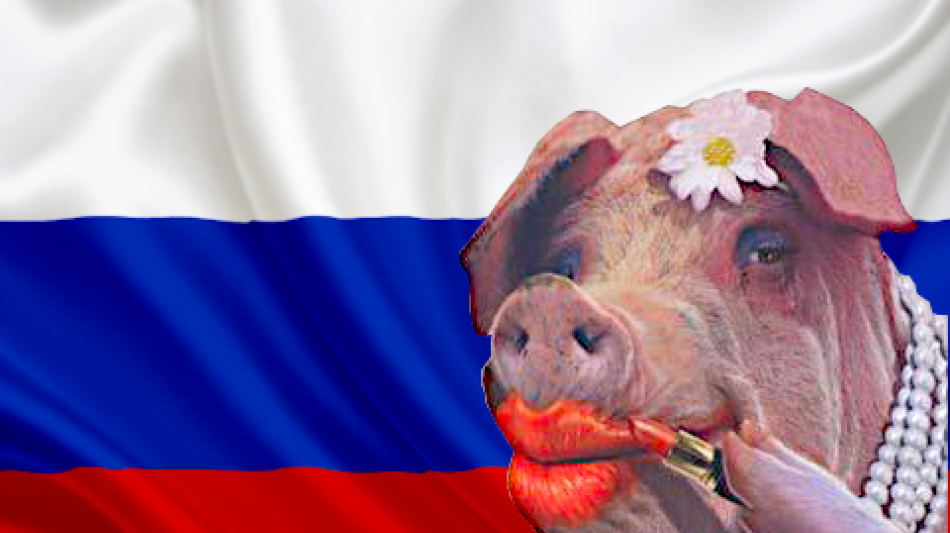
Perverted Russian gets a bashing as flag thief

Россия: Кто придет после преступника Путина?

Thank you Ukraine for the destruction of the Russian terror soldiers!



